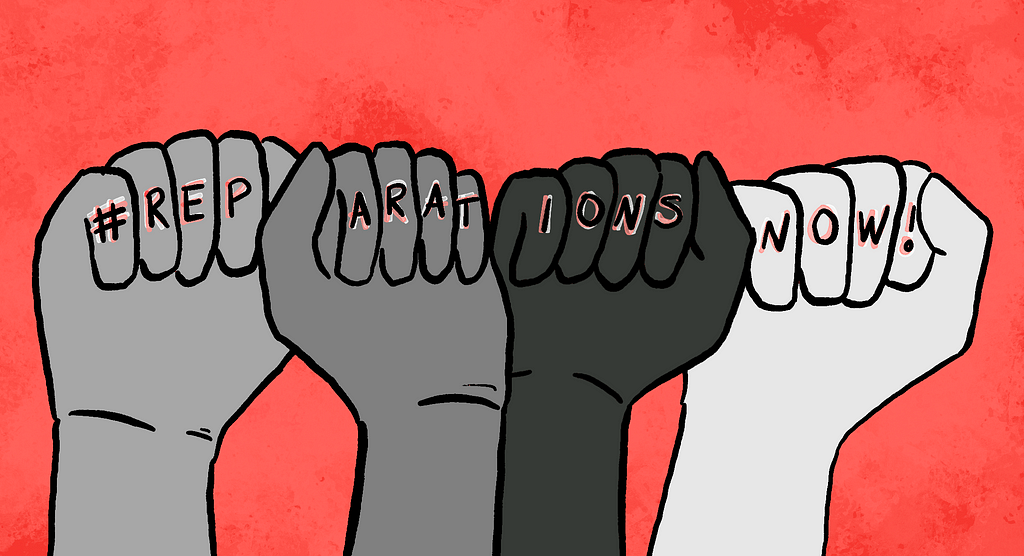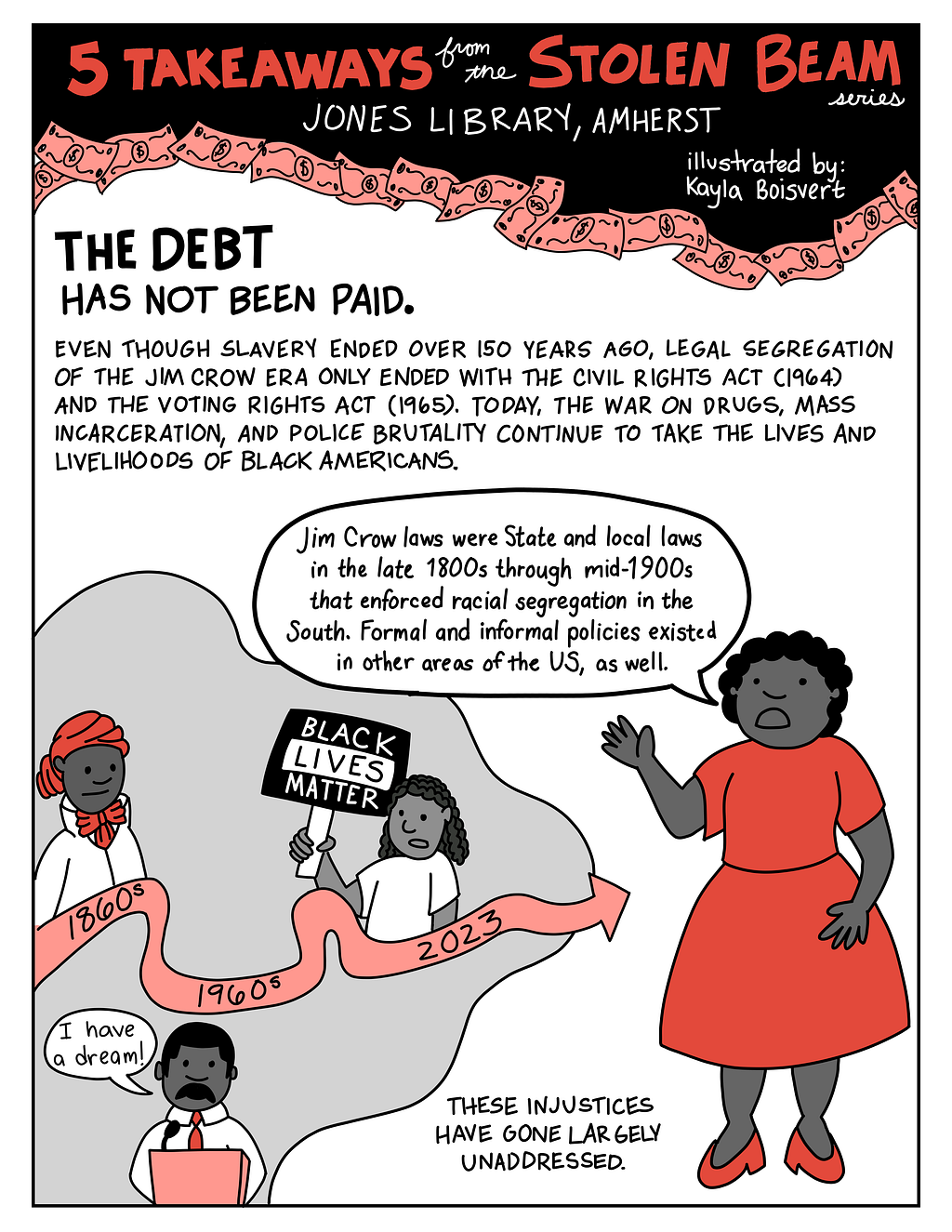This is an Eval Central archive copy, find the original at medium.com/innovationnetwork.

Over the past year, I’ve been diving deep into concepts around reparations — in a course I took about reparations for slavery in the US (check out my 5 Key Takeaways!), as well as in my dissertation work where I’m looking at reparations as a new way to frame international development and humanitarian aid.
In my work as an evaluator and researcher, I’ve been asking myself — what can we learn from reparations and anti-racism work that can shift our evaluation practice towards equity and justice? I’ve come up with 3 things we need to do better:
- Name and talk (and write) about race and coloniality. Too often, our work as evaluators does not meaningfully examine histories and contemporary contexts of slavery, White supremacy, and colonialism/imperialism. If we are going to contribute meaningfully to social change, we need to explore how these issues affect opportunities and outcomes for people of marginalized identities. We need to include this analysis in our presentation of findings. We need to frame our work as seeking to shift the Racial Contract.
- Critically examine the cultural, political, and economic contexts of our work. The current neoliberal capitalist system in the US and globally was built on the conquest and exploitation of Black and Brown folks. And it relies on continued injustice to survive. If we are to contribute to social change, as evaluators we need to interrogate the unjust systems — the power hierarchies, mental models, and relationships — in which the policies and practices we aim to shift are embedded.
- Problematize our own role in maintaining the status quo. We all live in a White supremacist, imperialist, capitalist society. Even if we actively work to dismantle it, our mere existence and participation in it upholds it. We are what Michael Rothberg calls ‘implicated subjects’.As evaluators, we need to continuously examine how our practices in our organizations, our work, and in relationship with communities may be contributing to injustice. We need to practice reflexivity to move towards a constructive complicity.

There are many other ways evaluators are examining their complicity in White supremacist systems. Leave a comment to share your thoughts, or follow our blog for more insights in how this shapes our evaluation work!
Kayla Boisvert is an artist and researcher for advocacy initiatives that promote social justice at Innovation Network. She lives in Western Massachusetts with her husband and silly dog-monster. She is often found running trails and climbing mountains where she lives and around the world.
What Reparations Taught Me as an Evaluator was originally published in InnovationNetwork on Medium, where people are continuing the conversation by highlighting and responding to this story.